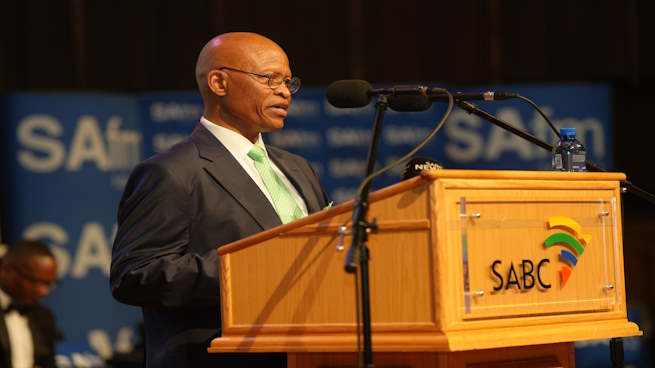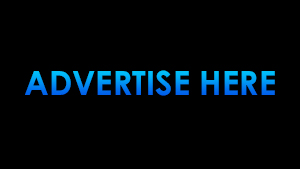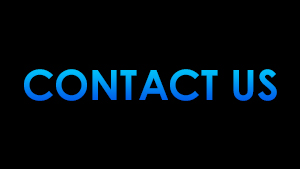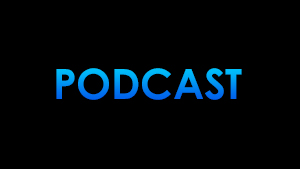Former Chief Justice Mogoeng Mogoeng delivered the inaugural SAfm lecture on the theme 'Constitutionalism and Upholding the Rule of Law in South Africa: Has Corruption and Malfeasance Eroded the Moral Fabric of the Democratic Dispensation in What is Considered the World's Leading Example of a Transformative Constitution.' Mogoeng's speech focused on the significance of constitutionalism in upholding democratic values, the role of the Judiciary in safeguarding the rule of law, and the evolving nature of constitutional interpretation and its implications for present-day challenges.
A panel discussion, facilitated by Songezo Mabece, included Senior Researcher at Corruption Watch Xolelwa Kashe-Katiya, Project Lead at the Indlulamithi SA Scenarios Trust, and Prelisha Singh, a Partner at Webber Wentzel specialising in all aspects of constitutional and administrative law."
Read Mogoeng's full speech:
CONSTITUTIONALISM AND UPHOLDING THE RULE OF LAW IN SOUTH AFRICA: HAS CORRUPTION AND MALFEASANCE ERODED THE MORAL FABRIC OF THE DEMOCRATIC DISPENSATION IN WHAT IS CONSIDERED THE WORLD'S LEADING EXAMPLE OF A TRANSFORMATIVE CONSTITUTION
THE SAFM INAUGURAL LECTURE
29 NOVEMBER 2023
By Mogoeng Mogoeng
1. Acknowledgements and gratitude
2. As stated, the topic for this inaugural lecture is:
"Constitutionalism and upholding the rule of law in South Africa: has corruption and malfeasance eroded the moral fabric of the democratic dispensation in what is considered the world's leading example of a transformative Constitution".
According to my brief, I am at large to address any issue that is relevant to this topic and may also share some reflections on issues such as:
* The significance of constitutionalism in upholding democratic values
* The role of the Judiciary in safeguarding the rule of law
* Any case studies illustrating the delicate balance between individual rights and societal interests
* The evolving nature of constitutional interpretation and its implications for modern challenges.
3. Madiba's handwritten notes on the rule of law were reproduced in the book, "DARE NOT LINGER", written by Mandla Langa about the Mandela Presidency. Here they are :
"I have to be bossy and establish that I obeyed the subpoena out of strength and not weakness.
These two examples clearly demonstrated that in the new South Africa there is nobody, not even the President, [who] is above the law, that the rule of law generally, and in particular the independence of the Judiciary should be respected".
The "two examples" alluded to, in this caution against untouchability, are in relation to the subpoena to President Mandela to personally testify in the Pretoria High Court, as a sitting President, and the Constitutional Court judgment that set aside the Regulations he had promulgated, on the basis that they were irrational. In both instances, he led by example and complied with the Court order.
4. At the tail-end of the topic are two words "transformative Constitution". They arouse a deep-seated yearning for the fulfillment of our shared constitutional aspirations.
5. But there is a setting within which this has to be discussed. Additional to the essence of the rule of law already shared, it is necessary to say what transformation, and constitutionalism entail. A failure to do so could otherwise denude this lecture of the real possibility it has, to raise critical and burning issues that cry out for attention or a robust engagement.
6. Beginning with transformation, I am in full agreement with Chief Justice Pius Langa's description of it as "a social and economic revolution".
7. As for "constitutionalism", I again think it best to draw from the book "DARE NOT LINGER". Quoting from his speech delivered when he inaugurated the Constitutional Court in February 1995, President Mandela said:
"Constitutionalism means that no office and no institution can be higher than the law. The highest and the most humble in the land, all, without exception, owe allegiance to the same document, the same principles. It does not matter whether you are black or white, male or female, young or old, whether you speak Setswana or Afrikaans, whether you're rich or poor or ride in a smart new car or walk barefoot, whether you wear a uniform or are locked up in a cell. We all have certain basic rights, and those fundamental rights are set out in the Constitution".
8. Transformation and constitutionalism, are inextricably and purposively linked and have converged into what has come to be known as transformative constitutionalism, about which Chief Justice Pius Langa had this to say:
"...one of the central tenets of transformative constitutionalism is a commitment to substantive equality and improving socio-economic conditions. It is no surprise then that perhaps the biggest obstacle to attaining a truly transformative constitutionalism is the continuing disparities of wealth and power that pervade our country".
9. It is fitting to want to know what progress we have made over almost thirty years of our democratic dispensation, to address "the continuing disparities of wealth and power" in a meaningful way. These should be useful signposts with reference to which we have to measure our progress as a nation.
10. But first the constitutional architecture of our State. In the case of UDM v THE SPEAKER, the Constitutional Court addressed this issue with special reference to how the three centres of raw State power - the three Arms - come into existence and operate. It said :
"[1] South Africa is a constitutional democracy – a government of the people, by the people and for the people through the instrumentality of the Constitution. It is a system of governance that “we the people” consciously and purposefully opted for to create a truly free, just and united nation. Central to this vision is the improvement of the quality of life of all citizens and the optimisation of the potential of each through good governance.
[2] Since Constitutions and good governance do not self-actualise, governance structures had to be created to breathe life into our collective aspirations. Hence the existence of the legislative, executive and judicial arms of the State. They each have specific roles to play and are enjoined to inter-relate as foreshadowed by the following principle that guided our constitution-making process:
“There shall be a separation of powers between the legislature, executive and judiciary, with appropriate checks and balances to ensure accountability, responsiveness and openness.”
[3] Knowing that it is not practical for all fifty five million of us to assume governance responsibilities and function effectively in these three arms of the State and its organs, “we the people” designated messengers or servants to run our constitutional errands for the common good of us all. These errands can only be run successfully by people who are unwaveringly loyal to the core constitutional values of accountability, responsiveness and openness.........
[7].... Since State power and resources are for our common good, checks and balances to ensure accountability enjoy pre-eminence in our governance system.
[8] This is all designed to ensure that the trappings or prestige of high office do not defocus or derail the repositories of the people’s power from their core mandate or errand. For this reason, public office-bearers, in all arms of the State, must regularly explain how they have lived up to the promises that inhere in the offices they occupy. And the objective is to arrest or address underperformance and abuse of public power and resources".
11. It behooves me as a member of the judicial Arm of the State, to address the proper exercise of State power in seeking to actualise our shared dreams.
12. Courts bear the ultimate responsibility to give substance to the supremacy of the Constitution and the rule of law. They do so by, among other things, invalidating any conduct that is inconsistent with the Constitution and ensuring that constitutional obligations are fulfilled. Unlike before, they must rely on ideas and values. And as Chief Justice Pius Langa correctly pointed out :
"This approach to adjudication requires an acceptance of the politics of law. There is no longer place for assertions that the law can be kept isolated from politics. While they are not the same, they are inherently and necessarily linked".
13. Judicial Officers must guard against anything that could compromise their ability to bring an impartial mind to bear on the issues. I find this observation in the SARS v KRUGER, case which touches on the special role of the Constitution and the Judiciary as well as the appropriate approach to issues, to be useful:
"The Constitution is the conscience of the nation. And the courts are its
guardians or custodians. On their shoulders rests the very important responsibility of holding our constitutional democracy together and giving hope to all our people that their constitutional aspirations will be realised. To this end, when there is litigation about racial supremacy-related issues, it behooves our courts to embrace that judgment call as dispassionately as the judicial affirmation or oath of office enjoins them to and unflinchingly bring an impartial mind to bear on those issues, as in all other cases.
Judicial Officers must be very careful not to get sentimentally connected to any of the issues being reviewed. No overt or subtle sympathetic or emotional alignments are to stealthily or unconsciously find their way into their approach to the issues, however much the parties might seek to appeal to their emotions. To be caught up in that web, as a Judicial Officer, amounts to a dismal failure in the execution of one’s constitutional duties and the worst betrayal of the obligation to do the right thing, in line with the affirmation or oath of office".
14. Although it was in a dissent, the Constitutional Court again addressed this matter, in Public Protector v President of the Republic of South Africa. It said :
"Our laws must be interpreted with due regard to the foundational values of our democratic State and with a keen commitment to strengthening our constitutional democracy and furthering the constitutional project of ensuring that constitutional obligations are honoured but not undermined or frustrated. The Constitution… exists for the purpose of enhancing or enabling the attainment of justice, giving substance to our founding values and ensuring compliance with high ethical standards and constitutional obligations. They are not to be interpreted in a way that impedes the realisation of these critical objectives. Courts should not therefore inadvertently enable schemes designed to or that could unintentionally frustrate the fulfillment of ethical imperatives and constitutional obligations by allowing legal sophistry or technicalities to obscure commonsensical realities".
15. It would obviously be remiss, if not hypocritical, of me to discuss acceptable judicial conduct but not touch on my own track record as Judicial Officer. Admittedly, the JCC found me guilty, not of pro-Israel statements as was either ignorantly or maliciously propagated, but for criticizing the presumably existing official government policy towards Israel" that was opposed to a peaceful resolution of the Middle East conflict and the attainment of peaceful co-existence . As it turned out, no such policy ever existed. That is the so-called involvement in politics that I had to apologize for, hence the crafting of the mandatory apology in the terms that effectively reiterated what I had said before, including my love for both Israel and Palestine, as well as for the Jews and Palestinians.
16. As it eventually turned out, the Constitutional Court had this to say on 16 February 2022 in the BONGANE MASUKU case:
"On a plain reading of the transcript of the webinar...the respondents’ submissions are unsustainable. Interpreted objectively and within the context of the entire webinar, none of Mogoeng CJ’s statements can be taken to be anything more than his religious and personal views. Quite contrary to what the respondents argue, an objective reader would not understand the comments to be advocating for a particular political stance towards the conflict other than, at most, hopes of forgiveness, peace and love. They do not intimate any kind of hostility or negative views towards any of the parties involved in the conflict.
It is an untenable stretch to characterise Mogoeng CJ’s comments as expressing “unconditional support for the State of Israel” when the context quite evidently shows that Mogoeng CJ was communicating his biblical love for all, including Israel and Palestine, and his opinion on South Africa’s painful past and unique perspective which enables it to advocate for peace in the global context. There is also nothing in the evidence provided by the respondents which supports the notion that Mogoeng CJ condemned the BDS movement and South Africa’s stance towards Israel. On the contrary, the transcript of the webinar reveals that Mogoeng CJ declined to comment on whether the BDS movement is conducive to a peaceful resolution of the conflict.
... In determining this inquiry, we have to assess the facts relating to Mogoeng CJ’s conduct, not the media’s interpretation thereof. On the contrary, courts must cautiously avoid being influenced by the media, for failure to do so would be the end of a functional and independent Judiciary. The issue of recusal must be determined by taking stock of the objective facts, which can hardly be said to be found in the pages of the press. We... are aware of no reason why anything in the media should have any bearing on this enquiry. We could very easily find ourselves going down a treacherous rabbit hole if the media were to guide our objective assessment of facts in cases that seize us.
After applying the law to the facts, the only conclusion that we can reach is that the respondents have not discharged the onus of establishing that, on the correct facts, Mogoeng CJ’s conduct created a reasonable apprehension of bias".
17. The next centre of State power is the legislative Arm.
18. Constitutionalism and the rule of law demand of the National Assembly to hold the President and his Team accountable. The Constitutional Court again had occasion to express itself on this matter and the role of parliament as follows :
"...the National Assembly, and by extension Parliament, is the embodiment of the centuries-old dreams and legitimate aspirations of all our people. It is the voice of all South Africans, especially the poor, the voiceless and the least˗remembered. It is the watchdog of State resources, the enforcer of fiscal discipline and cost-effectiveness for the common good of all our people. It also bears the responsibility to play an oversight role over the Executive and State organs and ensure that constitutional and statutory obligations are properly executed. For this reason, it fulfills a pre-eminently unique role of holding the Executive accountable for the fulfillment of the promises made to the populace through the State of the Nation Address, budget speeches, policies, legislation and the Constitution, duly undergirded by the affirmation or oath of office constitutionally administered to the Executive before assumption of office. Parliament also passes legislation with due regard to the needs and concerns of the broader South African public. The willingness and obligation to do so is reinforced by each member’s equally irreversible public declaration of allegiance to the Republic, obedience, respect and vindication of the Constitution and all law of the Republic, to the best of her abilities. In sum, Parliament is the mouthpiece, the eyes and the service-delivery-ensuring machinery of the people. No doubt, it is an irreplaceable feature of good governance in South Africa".
19. It was in response to these obligations, and in order to address the demands of the "socio-economic revolution" that the Mineral and Petroleum Resources Development Act, was enacted. As a result, some landowners forfeited ownership of the minerals in their land presumably in pursuit of the preambolic aspiration of righting the historic economic injustices. This laudable objective was captured in these terms by the Constitutional Court :
"South Africa is... a geographically sizable country and very rich in minerals. Regrettably, the architecture of the apartheid system placed about 87 percent of the land and the mineral resources that lie in its belly in the hands of 13 percent of the population.... To address this gross economic inequality, legislative measures were taken to facilitate equitable access to opportunities in the mining industry".
20. A delicate but admittedly very difficult balancing act had to be struck between individual rights and societal or national interests, for the attainment of much-needed economic justice and a boost to economic development, and growth. Our courts handled this balancing act as follows :
"This brings to the fore the obligation imposed by section 25 not to over-emphasise private property rights at the expense of the state’s social responsibilities. It must always be remembered that our history does not permit a near-absolute status to be given to individual property rights to the detriment of the equally important duty of the state to ensure that all South Africans partake of the benefits flowing from our mineral and petroleum resources.
.... More tellingly, it could undermine the constitutional imperative to transform our economy with a view to opening up access to land and natural resources to previously disadvantaged people.This would also affect the need to create jobs, grow our economy by developing these resources in a sustainable way and guarantee security of tenure to those prospecting for or exploiting mineral and petroleum resources.
27. The possibility of activating the transformative constitutionalism and rule of law machinery, and to ensure accountability, responsiveness and openness, lies largely with the fundamentals that inform how one gets to ascend to the highest position in a political party, and by extension to the highest offices in the political Arms of the State. Who facilitates a politician's upward mobility, is a question that must necessarily and relentlessly exercise our minds. For, the biting truth is that there is no free lunch in this world. Private funding of individuals in political parties and of political parties themselves is, in my view, an investment that is expected to yield very handsome returns, as soon as the beneficiaries thereof rise to positions of sufficient authority to deal out favors and tenders. And this is a well-researched reality by maturer democracies like the USA. Unfortunately, a compromised leader is most likely to compromise others as well. The objective being to disarm and immobilise those who could ordinarily have insisted on constitutionalism, the rule of law and accountability. And that is how the moral fabric of a constitutional dispensation could be eroded. What follows was an attempt by a lone voice in the wilderness, to awakening us all to this potentially devastating possibility:
"When people or entities other than the then Deputy President’s party gave him sponsorship or financial assistance for the purpose of realising his ultimate political dream, he was, by accepting help or allowing others to accept help on his behalf, exposing himself to a situation involving the risk of conflict. For, that sponsorship or financial assistance to help him rise to the highest political office is most likely to induce a favourable disposition towards those who stood by him when help was sorely needed... And that is what the risk of conflict sought to be averted through these legal instruments or the duty to disclose entails.
'The reality is that private funders do not just thoughtlessly throw their resources around. They do so for a reason and quite strategically. Some pour in their resources because the policies of a particular party or independent candidate resonate with their world outlook or ideology. Others do so hoping to influence the policy direction of those they support to advance personal or sectional interests. Money is the tool they use to secure special favours or selfishly manipulate those who are required to serve and treat all citizens equally.
Unchecked or secret private funding from all, including other nations, could undermine the fulfillment of constitutional obligations by political parties or independent candidates so funded, and by extension our nation’s strategic objectives, sovereignty and ability to secure a ‘rightful place’ in the family of nations. Our freely elected representatives.... cannot help build a free society if they are not themselves free of hidden potential bondage or captivation.
The commitment to build ‘a united and democratic South Africa’ and to ‘improve the quality of life of all citizens’ can only be honoured by public office bearers whose character or willpower is unencumbered....'
In circumstances where ethical leadership, transparency and accountability are key to the survival and well being of our democratic order, a State functionary may not permissibly choose a way to obscure an otherwise disclosable benefit by creating or allowing a structure to be created, as a repository of a known benefit under the garb of a distinct juristic personality, so as to escape or immunise himself or herself from a constitutionally prescribed obligation to be open, accountable and to disclose.
The foundational values of openness and accountability demand that we pierce through the trust veil that is capable of inadvertently or by design frustrating the all-important disclosure in this corruption-infested country. Why would anybody not want to know who is helping them and how reasonably practicable is that anyway? And why would they want to have their benefactors unknown to Parliament or the public? It bears emphasis that the “refusal to know” in circumstances where there is a “duty to know” and the consequential failure to disclose is a sure, albeit unintended, recipe for corruption under the cover or facilitation of a well structured mechanism or legal stratagem, again not intended to, but having the inescapable effect of evading accountability, openness or disclosure.
The President therefore had the duty to know, if he did not know already, who was funding his campaign...and to disclose that personal benefit compositely as a benefit from the CR17 campaign as an entity and/or more appropriately from each donor with a specified amount. Why? So that Parliament and the public could know who was helping or had helped him to perform better than his competitors and enabled him to become ANC President and a few months later, President of the Republic. The possibility of an unhealthy relationship with donors and the risk of conflict between the Deputy President’s official responsibilities, as he then was, and his private interests, as the enabled most senior political party functionary, could then be closely watched to check whether the financial support had induced him or repositioned his disposition or heart to the point where his commitment to his constitutional obligations was in anyway compromised or his government’s treatment of funders was more favourable than of those who did not fund him or gave less. This is...what [the] foundational values of openness and accountability as well as the regulatory framework, properly understood, seek to address.
Had it not been for the whistle-blower who shared the emails with the Public Protector, it would most likely have never been known that the President and his campaign team presented facts known to be incorrect, to the Public Protector. ....The President and the CR17 team chose to and represented to the Public Protector that he deliberately kept himself and was intentionally and strategically kept ignorant of the donors and the extent of their contributions to the campaign as well as the operations of the campaign in relation to those
financial contributions. The Public Protector subsequently got hold of and relied on emails that belie the President and the CR17 campaign managers’ shared version of the President’s professed ignorance....
The President says repeatedly that he was not afforded the opportunity to be heard before the emails were finally relied on, that they were stolen or irregularly obtained from the CR17 campaign computers and because they constitute improperly-obtained evidence, that irregularity alone is sufficient to vitiate the entire Report. The President effectively acknowledges the existence and admits the authenticity of the emails. He confirms that they are indeed communications between him and, among others, the CR17 campaign team contained in the computers of the CR17 campaign. He demands more than once that the Public Protector should explain to him how and from whom she obtained this admittedly truthful but reputationally damaging emails. Not once does he explain why he and his team chose not to tell the truth but to rather mislead the Public Protector as they did. Instead he says that the emails are, in any event, irrelevant to the Public Protector’s findings. But, that cannot be correct. For, not only are the emails relevant, but they also expose the falsehood of the version that the President and the CR17 campaign managers chose to present to the Public Protector.
And it bears repetition that that false version is that there was a deliberate plan to ensure that the President does not get to know who the donors were, how much they donated and how the financial assistance received for his campaign was being used. The emails squarely believe this assertion. The question that we should then be asking ourselves is: why did the President and his team deliberately convey a falsehood on an issue so crucial and inextricably connected to the constitutional imperative to promote and observe high ethical standards in obedience to the demands of our democratic State’s founding values – openness and accountability. He must have known that if the truth evidenced by the emails were to be told the obligation to disclose the names of the funders and the size of their contributions to the National Assembly and by extension to the public would automatically and plainly be triggered. And... the public would then have the opportunity to curiously and vigilantly monitor the outward manifestation of his relationship with the sponsors...
Because of the gravity of these reflections, it behooves us to be more specific and frontal about the relevant constitutional demands upon the Presidency. The President as a State functionary is, in terms of section 239 of the Constitution, an organ of State. And section 181(3) of the Constitution demands of him, as an organ of State, to uphold and respect the Constitution by “assisting” the Public Protector and “ensuring” the “effectiveness” of that Office. And that Office cannot be assisted and its effectiveness ensured when those who are under a constitutional duty to help it, choose to mislead it and to fight it to the end for exposing their untruths. What the President self-evidently did was to undermine and frustrate the efforts of that Office to fulfill its constitutional obligations by not just withholding the truth but deliberately asserting the opposite of it. Furthermore, the President is obliged by section 96(2)(b) of the Constitution to not “act in any way that is inconsistent with [his] Office”. This section is the constitutional source of the high ethical standards by which the President is supposed to lead this nation. Strategically and intentionally giving a false version to the Public Protector while she is investigating a possible ethical breach falls squarely within the catchment area of this section.
Lest we forget, we are not dealing here with an average citizen but with the bearer of specific and frighteningly weighty constitutional responsibilities, who is expected and required to lead by example and be above reproach. His Office demands of him to be the lighthouse, the pathfinder, the embodiment of and vessel for the enforcement of high ethical standards particularly the foundational values of our democratic State, in this instance transparency, accountability and the supremacy of the Constitution. Like all of us, he has rights. But unlike all of us, he does have special obligations, not imposed by courts, but by the Constitution and legislation. It is the President, the number one or first citizen of the Republic, who we are talking about here. His, is a distinctive and supreme Office in the land that does not permit the employment of extraordinary technicalities when issues of ethics, transparency, accountability, upholding and respecting the Constitution have to be considered and pronounced upon. It is in this context that one is constrained to keep on saying that technicalities must not be allowed to easily frustrate the fulfillment of core constitutional obligations and the attainment of substantive justice.
28. In conclusion, why does it look like we are failing or unwilling to resolve the all-important ESKOM issues? After all, it has been many years since those who were allegedly corrupt and destroying ESKOM have been relieved of their duties. The same group that actually ended loadshedding at some point. Besides, this is not a new problem and our future, our economy and credibility as a nation depends on the functionality and efficiency of ESKOM. I saw a clip of one of our businessmen complaining about how cheap the public obtains electricity from ESKOM and that it made it difficult for the private sector to compete with ESKOM. Is that clip real and true or is it one of these maliciously manufactured campaigns against innocent people? It needs to be looked into together with the explanatory note that goes with it. It bears emphasis that the resolution of the ESKOM problems is long overdue. This is a matter of constitutional office-bearers and the State having to own up to their critical obligations. And our curiosity should extend to whether Independent Power Producers are a blessing or liability including whether we the people are getting value-for-money from them.
29. It is most devastating to have almost 7 000 of our people killed by criminals in three months over so many years, so many women raped, so much fraud and corruption in both the public and private sector, runaway crime, and lawlessness throughout the country even when it comes to driving, to have our road and rail infrastructure in so deplorable a state, to have to contend with this educational system that is beginning to look like institutionalised mediocrity.
30. Who has been awarded big tenders by State Owned Enterprises like ESKOM, TRANSNET etc? How much did they pocket? Who do they relate to or have they funded and did we get value-for-money for their actual or supposed services?
31. What is being done about the toxic material reported by Aljezeera years back to have been dumped by one of our mining companies in the West Rand, which has had a deleterious effect on the health of children and adults, animals and vegetation. The engineer interviewed, alleged that the affected mining company said it would be too expensive to remove this hazardous material. Has it since been removed? What about those who have been dumping toxic material in our rivers and ocean. Constitutionalism and the rule of law demands consequence management under these circumstances considering the provisions of our Constitution and environmental legislation.
32. We have had a glimpse at the possibility of landowners deriving a semblance of benefit from the exploitation of the mineral deposits in their land from the Royal Bafokeng people, the recently renegotiated mining agreement between De Beers and the Botswana Government and Uganda and the petroleum industry. Given the state of our economy and the multiplicity of our needs, is there anything stopping us from renegotiating and insisting on beneficiation like other nations?
33. Do industries exploiting the mineral resources in our rural communities honour their disturbingly unfair social responsibility contracts? If so, where?
34. Just how effective are the legal instruments and agencies designed to contain the vulnerabilities and compromises that come with private funding? Is it not time that we develop a public funding model that would ensure that government and political parties owe their allegiance to the taxpayer rather than to private funders. Isn't it a price worth paying to avoid a democratic order that potentially or in reality produces a government of the rich, by the rich and for the rich? Should it matter that no other nation has ever done that? Why should we be copycats? Otherwise let's consider an altogether different political system which will truly yield substantive equality, including equality before the law, and improved socio-economic conditions, thus doing away with the inhumane habitations like the Gugulethus, Mannenbergs, Khayelitshas, Mitchell's Plains and Diepsloots that are seemingly spiraling out of control.
35. President Thabo Mbeki produced a report on the unbelievably large scale of illicit money flows from Africa, which is an existential threat to our economy. Who of the natural and corporate citizens of our country are involved in this and what is being done to shame and punish them. If we don't know them, why? Who investigated and when?
36. Why and how did the current state of dysfunctionality get to settle in, so comfortably and to the point of being normalised, in the overwhelming majority of our municipalities? Where are the ethical leaders to stem this tide, when the nation so sorely needs them?
37. I recently heard the Director of the World Health Organization alluding to another covid-like vaccination program. I also watched a clip of him being asked "and you took your first covid vaccination, when?" After stuttering for a while his response was that he didn't take it out of a sense of solidarity with Africa because he is an African and most Africans were not vaccinated. So, he who was pushing this vaccination so hard against others, did not avail himself for it. I hope it is a lie that health professionals are hard at work in preparation for the vaccination project alluded to by WHO. If this is true? Constitutionalism and the rule of law demands that the State of Emergency, which is sourced from the Bill of Rights be declared so that our inviolable section 12 constitutional rights can be respected, rather than be taken away by some Ministerial regulations.
38. Notwithstanding some of the reportedly controversial statements he made, I still find this remark attributed to Elon Musk most thought-provoking :
"Imagine a vaccine so safe that you have to be threatened to take it, for a disease so deadly you have to be tested to know you have it".
It might sound simplistic considering that as deadly as cancer could be, one often has to be tested to know that you have it. But, you are never threatened or rewarded and forced to be tested, not even for HIV AIDS.
39. The foundational values of accountability, responsiveness, and transparency which are the essential part of the moral fabric of our democratic dispensation and are also embedded in constitutionalism and the rule of law, demand that we be not ambushed with some of these medical programs chiefly promoted by personalities and entities whose genuine commitment to human rights and the alleviation of the suffering of Africans and other people in the rest of the third world, is not known.
Watch here:













